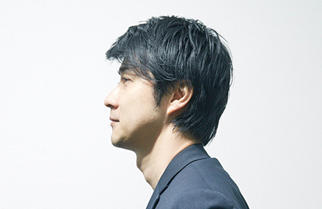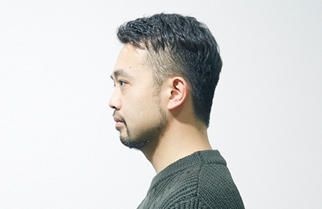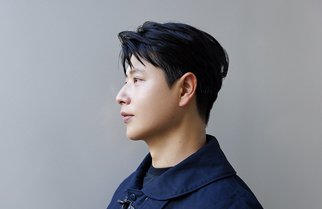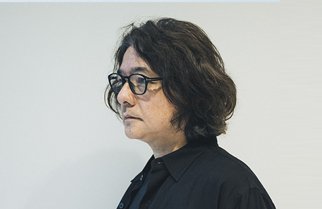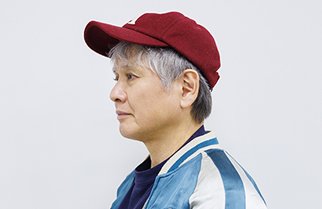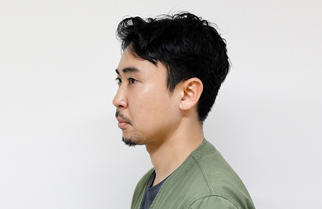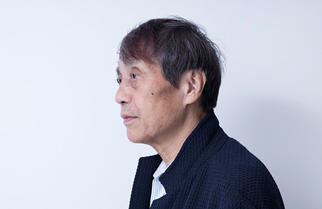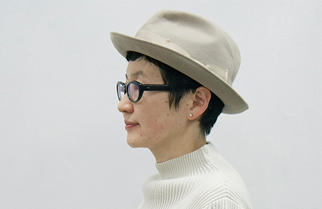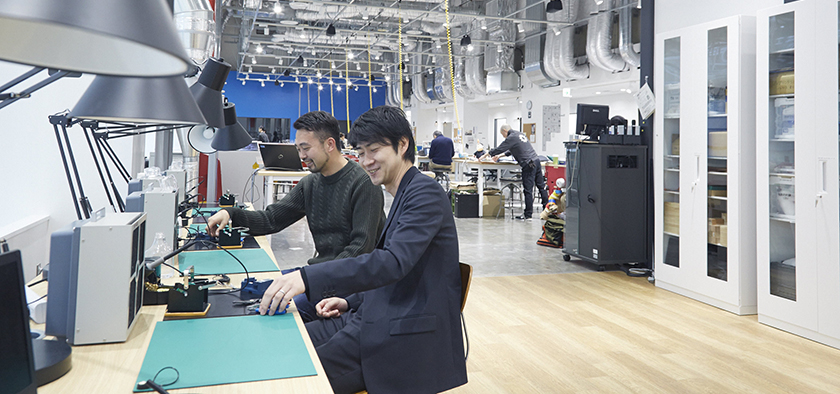
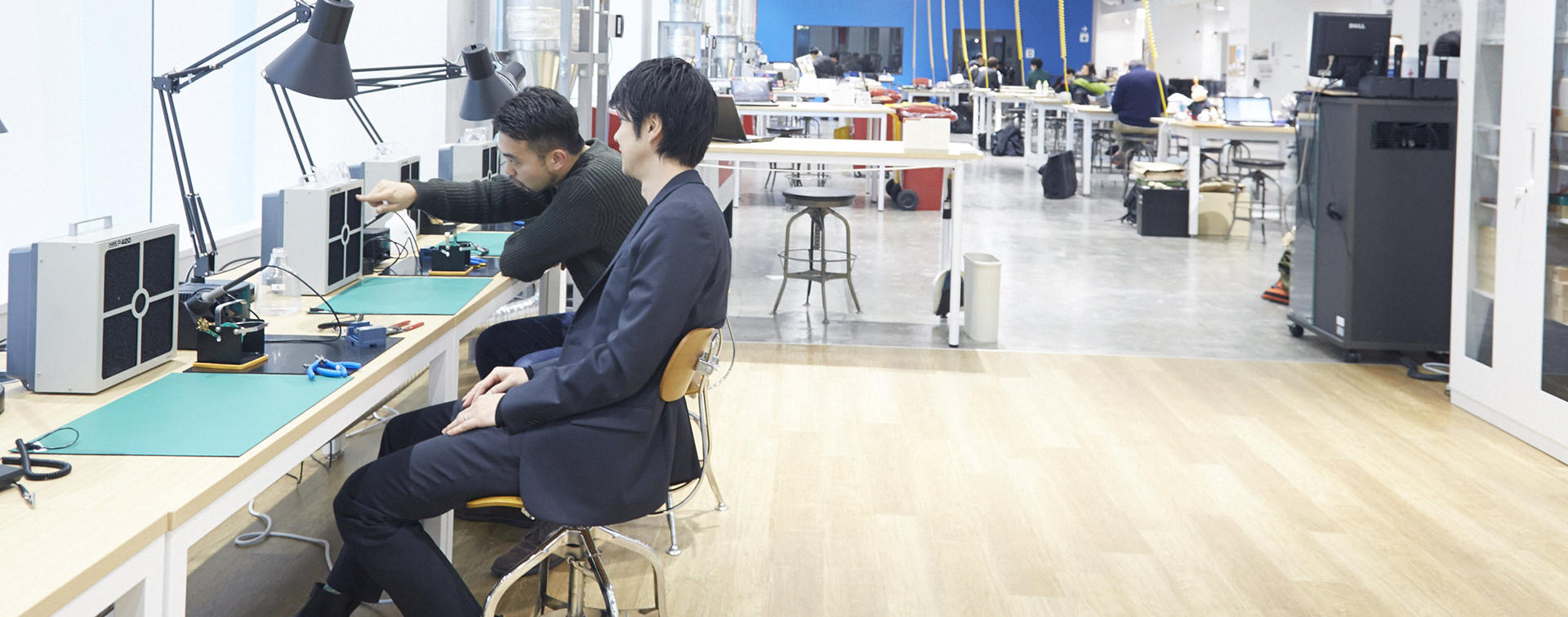
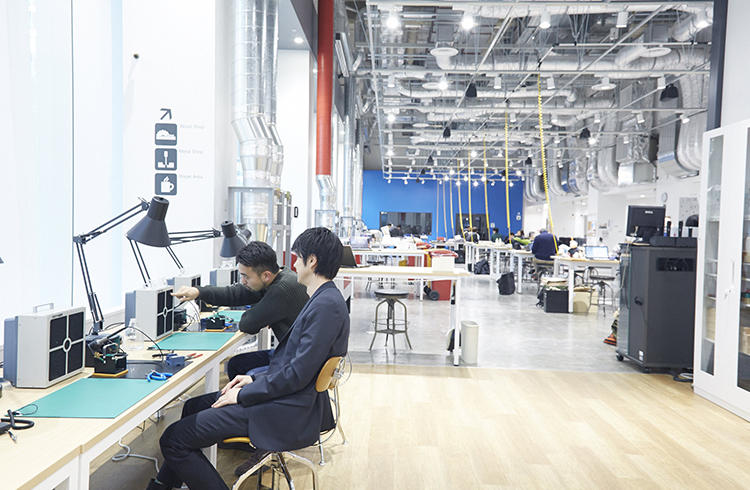
Will technology change the future of Roppongi?
Tagawa:Setting up a world-class design laboratory Chen:Solving the “pain” in Roppongi for a desirable future
Instead of the interview we usually hold, we invited design engineer Kinya Tagawa and IT architect Dominick Chen for a discussion. Tagawa is head of design innovation firm Takram, and is a visiting professor at Britain's Royal College of Art. Chen is co-founder of Dividual which develops application software and is also the author of many books on the subject of infomatics. We asked the two to talk on the theme of Roppongi, technology and the future.
The lack of air in Roppongi
TagawaI wonder what the relationship between Roppongi and technology is. I don't think there's much of a connection. (laughs)
ChenTechnology is just a means to an end. The objective is more important. Maybe that is why it's better to think about what is currently lacking in Roppongi.
TagawaThe air, the air!
ChenRoppongi lacks air?
TagawaThat's right. There's not enough good air in Roppongi. Most of the streets of Roppongi were probably built in the '80s, and it was only after Roppongi Hills and Tokyo Midtown were built that the landscape came to have places with open air. The appearance of these tall buildings among the flat places seems to signify that Roppongi is finally leaving the 20th century behind. There's no deep meaning to my remark that Roppongi lacks air. It's just that when I come to Roppongi, I feel that I'm inhaling less air.
ChenIs that because you can't see the sky?
TagawaPerhaps. Maybe it's the presence of the Shuto Expressway. But here at TechShop Tokyo, the ceilings are high, and I feel that I'm properly breathing the air.
ChenI suppose it's essentially a matter of space. The other day, I went to Kiso Village which lies between the border of Gifu and Nagano. Toson Shimazaki wrote that in Kisoji, there is nothing but the mountains. And indeed, I found that there really is nothing there but the mountains and the fresh air.
TagawaThis has nothing to do with technology, but how about demolishing all the old streets and creating a big expanse of lawn- A huge, transparent roof standing about 20 stories high could be built to keep the rain out. That would certainly look very futuristic. (laughs)
ChenThat sounds cool.
TagawaThe future is defined by its contrast to the present. By contemplating a situation that is the opposite of the current situation - in this case, the lack of air - we can get a glimpse of what the future might look like. So the future of the countryside will be completely different from the future that will be shaped in Roppongi.
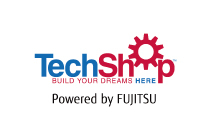
TechShop Tokyo
A membership-based do-it-yourself workshop that opened on April 2016 on the third floor of Ark Mori Building. It is the first workshop in Asia to be set up by TechShop in California. Equipped with around 50 types of tools and equipment including 3D printers, the workshop has rooms for processing wood and metal in addition to a classroom. Hackathons and social events are held.
The need for human warmth rather than information
ChenHave you ever had the experience of going to the countryside and not wanting to come back to Tokyo- There's so much more information in Tokyo and the technology is advanced, but the ideal future that many people seem to have in mind is to work in Tokyo and relax in the countryside. But I feel it shouldn't really be like that.
Maybe consciously or unconsciously, people feel that the air is lacking. Perhaps it's an invisible stress people have. I wish we could provide a solution. It would probably help us create a desirable future.
TagawaEven though I find it stifling, I often come to Roppongi. It's not because I like the atmosphere. I come because there are interesting places. But then, if Roppongi came to have more air, certain people may no longer come here. (laughs)
ChenThis year I spent a lot of time in Ropppongi. I had the opportunity to participate in several Roppongi Art Night projects. I also served as juror for the Good Design Award and did the art direction for an exhibition at Design Hub.
At Roppongi Art Night, I did a talk show that went on until around 3 a.m. On that night, all kinds of people came to Roppongi, including foreigners. But seeing everyone come and then disappear, I wondered if people were really mingling with each other. It made me think we ought to do something about it. I thought that technology or something to do with programming might provide a solution.
The word "technology" is often associated with ways of presenting information to people, but human warmth can sometimes be more important than information. So I can really relate to what you said about the air. One cannot feel a lot of human warmth in Roppongi. Oh, but I better not talk negatively. (laughs)

An innovative project in the streets of Roppongi
TagawaI'm currently serving as a visiting professor at the Royal College of Art in Britain. Tokyo is where I studied engineering and London is where I studied design. The two cities have helped me to grow and I wanted to repay in some form. An idea that came to me was to build the world's best design laboratory in Tokyo. When I talked about my idea, I was able to get the cooperation of the Institute of Industrial Science at the University of Tokyo. It's a unique laboratory with three lines - "technology-driven innovation," "design-driven innovation", and "industry-driven innovation". Instead of being cooped up in the world of academia, I'm thinking of taking the team members out into the streets and making all kinds of things that can be disseminated in the cities. I hope to also hold various events and workshops.
ChenI wish I could attend. (laughs)
TagawaPlease come and teach. We will be doing a lot of technological things, and it would be interesting to think of doing something in the streets of Roppongi.
ChenPerhaps the researchers at Design Lab could wear sensor devices and collect information of the kind that has never been gathered before; they could walk all around Roppongi, coming to places such as this TechShop, or going to the woods behind Tokyo Midtown.
TagawaWhat a fine idea. Let's do it! We must ask Roppongi Future Talks to support us. (laughs)
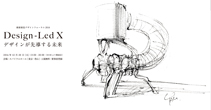
Design Lab
A new design hub jointly set up in January 2017 by the University of Tokyo's Prototyping & Design Laboratory and by the Royal College of Art. It aims to become a center for industry- academia cooperation, open to researchers and creators from Japan and abroad. Ahead of the launch, a symposium called "Design-Led X" was held on December 12, 2016 discuss the future of design and technology.
Ideas that are born from pain
ChenAt the workshops I hold at universities and other places, I ask people to describe things that disturb them. When people talk about the things that cause them stress or pain - things that they don't usually talk about, they get empathy from other people who are bothered by the same things or who can understand their stress. The empathy leads to ideas for solutions. You can call it "pain-driven design" or PDD. I just thought of that abbreviation. (laughs)
When you ask people what kind of changes they would like to see in Roppongi 30 years from now, they will come up with ordinary ideas. But when there is some sort of pain - like the lack of air that you mentioned earlier, it leads to specific solutions that pave the way for that kind of future people want.
The important thing is to know what kind of future we want. When we get caught up with simply pursuing technology, we tend to forget our motives, and we become excited about how fast or how convenient things can get. I don't think our motives should be to make more money or to improve efficiency. I think our motives should be based on a different set of values.
TagawaTechnology is the means and not the end.
ChenAbout 50-60% of share trading that takes place in America is algorithmic high-frequency trading. These trading systems are designed by engineering geniuses at securities companies, but the engineers themselves don't have a clear understanding of how all the programs made by the different companies are interacting with each other. It's nonsensical to operate such unfathomable systems that are capable of bringing damage and stress to people.
We need to stop and think hard once more about our vision for the future. We've come to the point where technology is progressing so fast that the sensibilities of human beings cannot keep up. The technology industry as whole needs to have a discussion.
The arrival of an extremely visually-oriented age
ChenWhat kind of technological future do you expect to see, Tagawa-san?
TagawaIn the last 20 years or so, we've seen the appearance of the smart phone and virtual reality (VR) and I really feel that a time will come when society will be visually-oriented in a way it has never been before. As a living creature, humans acquired the five senses one after another, and the last sense that was acquired was sight.
The senses that were acquired later are easier to deceive. Sight and hearing can easily be deceived, whereas the senses of touch, smell and taste are difficult to deceive. For instance, when you use a VR device with a high-resolution screen, it becomes difficult to tell whether what you are seeing is reality or not. And when you listen to music on headphones, you can almost feel as if you are in a concert hall.
ChenIt certainly would be difficult to fool the sense of taste.
TagawaThere are such things as 3-D printed food now, but they don't look tasty at all, do they? I think that the order in which humans acquired their senses corresponds to the levels of intimacy between people. If you don't like looking or listening to a person, you don't date that person and you don't hold hands. And the last thing you would want to do is to kiss.
The history of technology seems to be about breaking down those barriers. It's natural that we've started to create visual-oriented things since the sense of sight is most easily fooled. And in the future, things will be made for touch, smell and taste. The last sense will be considerably difficult to deceive, which probably means that the skills of a cook will continue to be valuable for quite a while yet.
We will probably see a big growth in digital experiences that will let people view things that are lovelier than real life; such experiences will be available anywhere and at any time. On the other hand, things that can't be duplicated such as a meal made by a certain chef will retain their value. So my vague image of the future is one where there will be a division into two extreme opposites.
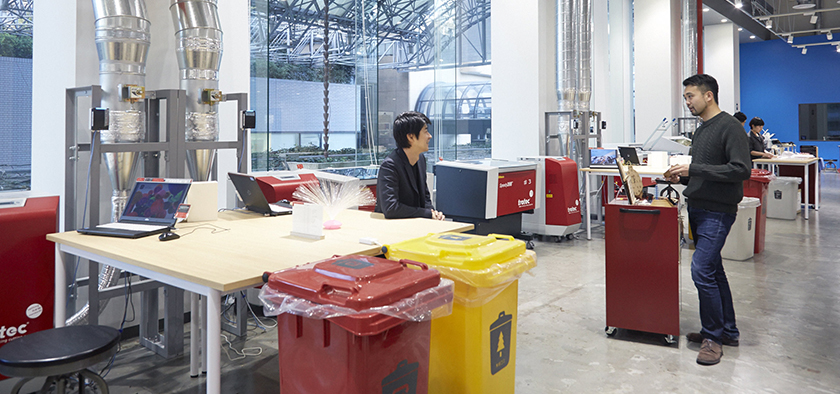
From human-centered designs to machine-centered designs
TagawaAnother thing that will probably happen in the future is the collapse of human-centered designs. We currently have human-centered designs because, put bluntly, they are necessary to sell products.
But I think whether there will come a time when products that are not of human-centered design will sell. What I think is that it will soon come. Instead of a person deciding what to buy, AI could make the decision. Daily necessities could be delivered to the home just by inputting one's planned budget. That's when the concept of "machine-centered design" will emerge.
ChenSo you think that in the future, such products will sell better?
TagawaUltimately, I think there will be a blending of both technological and human factors. There could be many combinations of interfaces such as a "machine-human-human-machine" relationship or a "human-machine-machine-human" relationship. Of course, problems will arise, but a lot of interesting things will also become possible.
The three things I just mentioned are what I'm vaguely pondering about lately. But it's a worldview that tends to be dystopian, so I think we need to consider what kind of ideals or philosophy we want to live by, and decide on our perspective.
Well-being and creativity in Japan
ChenI'm involved in a research project that was launched this year by the Ministry of Education, Culture, Sports, Science and Technology which aims to define what well-being means for Japanese people. For American people, well-being is about the individual becoming optimized and then society gradually becoming optimized - their story is rooted in individualism. But for the Japanese, well-being is related to one's position within a group and how one can contribute.
In Japan for example, people are sensitive toward the atmosphere of a place which is a trait that can make for very efficiently run systems. In Europe and America though, people are not usually influenced by atmosphere and they easily clash with each other. Disagreements can lead to interesting ideas, but I feel that in Japan, there might be a unique form of creativity that is shaped by the country's climate and culture.
If we did not take conscious action, technology will probably advance in a way that will strengthen the individual. But instead of separating individuals, I think technology can be used to bring people closer: for example, it might be able to specify something that can only exist in a relationship between people, for instance, between you and me. Technology might progress to the point where it can discern a part of Tagawa-san in me, and a part of me in Tagawa-san. I know that what I'm saying sounds weird. (laughs)
TagawaYou're talking about the dividual concept.
ChenYes. I even named my company "Dividual."
"Heartbeat Picnic" - a device to feel the heartbeat of another person
ChenI brought this device "Heartbeat Picnic" today to show you. It was jointly created by researchers Hideyuki Ando-san, Junji Watanabe-san and others. If I were to place this stethoscope on your heart, this box here will begin to throb. Holding the box, I would get the very strange sense as if I am holding your heart in my hand. It's a device that breaks down the barriers of touch.
This device has the effect of calming you down when you are feeling nervous - it helps to bring down the heart rate. When we hold workshops, people make interesting comments like "I feel very alive" or "If everyone used this, there would be no more murder crimes" or "Turning the switch off makes me feel sad."
TagawaMaybe it could make you fall in love with the other person. (laughs)
ChenThat is possible considering how hugely effective this device is in breaking the ice. The interesting thing at the workshops is that although no information is given out, the participants make their own interpretations and stories while interacting with each other. They naturally find a way to be happy. This is an area of technology that I wish to pursue from now on.
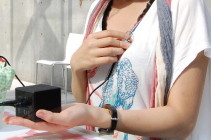
Heartbeat Picnic
A device where heartbeat sounds heard by a stethoscope are sent to an information processing circuit and emitted through a vibration speaker. The vibration speaker, when held in the hand, allows one to not only hear, but to feel the vibration of the heartbeat. Developed by Hideyuki Ando at Osaka University, Junji Watanabe at NTT Communication Science Laboratories, Kyosuke Sakakura at Tokyo City University, and Yui Kawaguchi, a dancer and choreographer.
The monster-like quality of AI
ChenMost of the AI research currently being undertaken focuses on how information in the outer world can be identified and how that data can be ingested in a compact way. I'm participating in a project called "Alife" which takes the opposite approach: we are working on AI that is specifically geared toward human output.
For example, we are thinking about robots that can be like partners for designers and artists, offering a wide variety of ideas that would be impossible to come up with on one's own. We're also thinking of robots that are like alter egos, quietly informing people of things like their unconscious habits. "Artificial life" is the name given to such technological beings that support and enhance the inherent qualities in humans so that we can live better lives.
TagawaIt sounds slightly similar to "machine-centered designs."
ChenIn my view, it's impossible for humans to understand or agree 100% with the logic of machines. I often tell people that we should regard AI as monster-like things. There are all types of monsters and they have no notion of good or bad, and it's impossible to comprehend what they're thinking.
I think that such feelings were what humans used to have toward nature. But now many things have become controllable, and there is a risk of a dystopic future in the fact that people are beginning to act as if humans can be human-controlled. So we need to give thought to relationships whether they are between humans or between machines and humans. We need to properly recognize the differences between ourselves and others and think of how we can connect. There must be many ways but I feel that simply assimilating is not an interesting way.
The dual aspects of creative people
TagawaEven before we met, I've had the feeling that our thoughts on that issue are similar. My job title is "design engineer" and my work consists of doing two very different things. The aim of my company Takram is not to blend substances A and B to cause a chemical reaction and get C as in chemistry, but to be like a pendulum - as in physics.
If design and engineering were black and white, I don't want to mix those two and get gray. In my mind, there is the purest black and the purest white, and I'm constantly traveling back and forth between those two at the highest speed. I thought of the job title "design engineer" to describe that state of mind.
ChenIt looks as if there is a fusion, but in fact, there must be a clear, conscious shift in perspective. That way of thinking seems to be being increasingly used for making products these days.
TagawaYes, I'm sure that all creative people have that way of thinking. There are businessmen who alternate between angelic and wicked, aren't there?
ChenAh, I know what you mean.
TagawaThere are also people who are impassioned one moment and logical the next moment. Masayoshi Son-san seems to be that type of person.
ChenAnd when such a person ends their talk by showing their angelic side, you are completely captivated. (laughs)
TagawaGifted engineers are like that too. They have outstanding skills and at the same time, they have their own philosophy which they are strongly committed to. They have that dual aspect; they use both aspects and can overcome barriers which would normally obstruct other people. Many engineers are like that unconsciously, and my wish is to clarify this way of thinking so that it can be shared by others.
Technology that leads to a better future
ChenDo you have an in-house training program for that?
TagawaWith a project to design hardware, for example, I assign two people: one is the director and the other is a person who isn't an expert on hardware design. When the two work together, their skills are transferred between each other. Also, I make sure that everyone is simultaneously in charge of two projects; one project will be in a genre the person knows a lot about, and the other in a genre he is not an expert on.
So when you look at the team as a whole, it is made up of members linked together like beads - all are alternately experts and non-experts in certain fields. It's a mechanism for passing on skills and knowhow. It's also a mechanism for naturally creating several "dividuals" in a person while doing work.
ChenIt's like the pendulum model replicating itself in a fractal-like way to create a system.
TagawaI'm guessing that at least about 10% of people are "hyper dividuals" - people who want to have diverse aspects within themselves. I often think how good it would be if we could have a society where everyone can make use of their talents, doing things that best fit them. I hope that technology will be used to help us create that sort of society.
ChenThese days I'm always wearing "Spire" - a device which measures one's state of breathing. The information gathered by this could prove useful in a workplace when shared by everyone. For example, staff might be alerted to the fact that someone who is new to a project is having a slight breathing problem. Then Tagawa-san will run up to that person and say "Are you alright?" (laughs)
TagawaThat's helpful technology - drawing attention to something that humans cannot notice.
ChenI mentioned pain a few minutes ago. There's the kind of pain that one is aware of and which other people can understand, and there is the kind of pain that goes unnoticed. The latter kind of pain is an area where I think human characteristics can be used to advantage.

dividual
A divided unit of an individual. In his essay "Postscript on the Societies of Control" published in 1992, French philosopher Gilles Deleuze, put forward the view that human beings are made up of separate characters that each differ according to their relationships with other people.
Interface researchers and communication disorder
ChenThere's talk that human skills can be replaced by AI, but I think that's only half true. I think it's half false because we have no idea at all about how to develop AI that has autonomous motivation. People have their own personal tastes; they spend time doing what interests them and they polish their skills. For example, some people will find a way to go to the concerts of their favorite singer no matter what, while others will code all through the night.
In the end, the most important question we can ask ourselves seems to be, "Why do people have particular interests?" On one side of the coin there is motivation, and on the other side there is pain - the cause of stress.
TagawaI agree with you. This is something I've recently realized, but almost all the interface researchers I know have communication disorder.
ChenI think I have that too. (laughs) People develop these devices precisely because they are in need of them themselves.
TagawaSo it's the people who are not good at communicating who are seeking a solution. Pain and inferiority complex can explain why people are driven toward certain things - the pain and the interest are two sides of the coin. It makes sense.
Editor's thoughts
Watching them talk animatedly like old acquaintances, one would never have guessed that this was the first time Tagawa-san and Chen-san had met each other. Tagawa-san told us that he plans to start the prototype of Design Lab running by the first half of 2017. We hope that his team will use the streets of Roppongi for their studies and hold events such as workshops. (edit_kentaro inoue)




